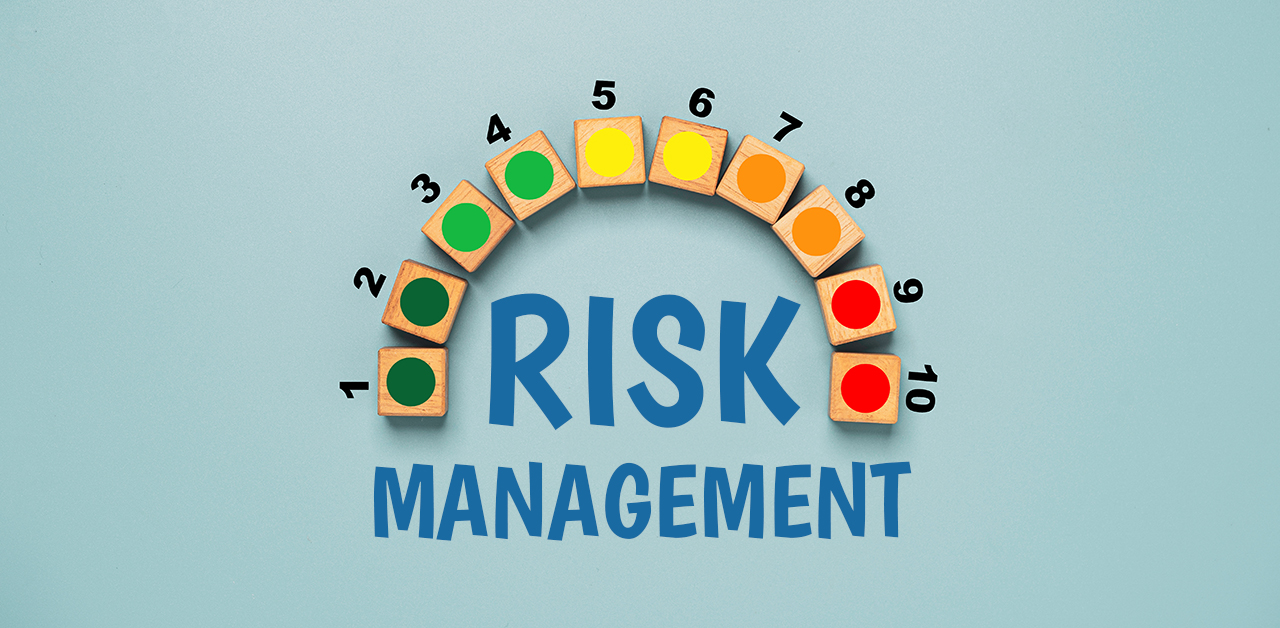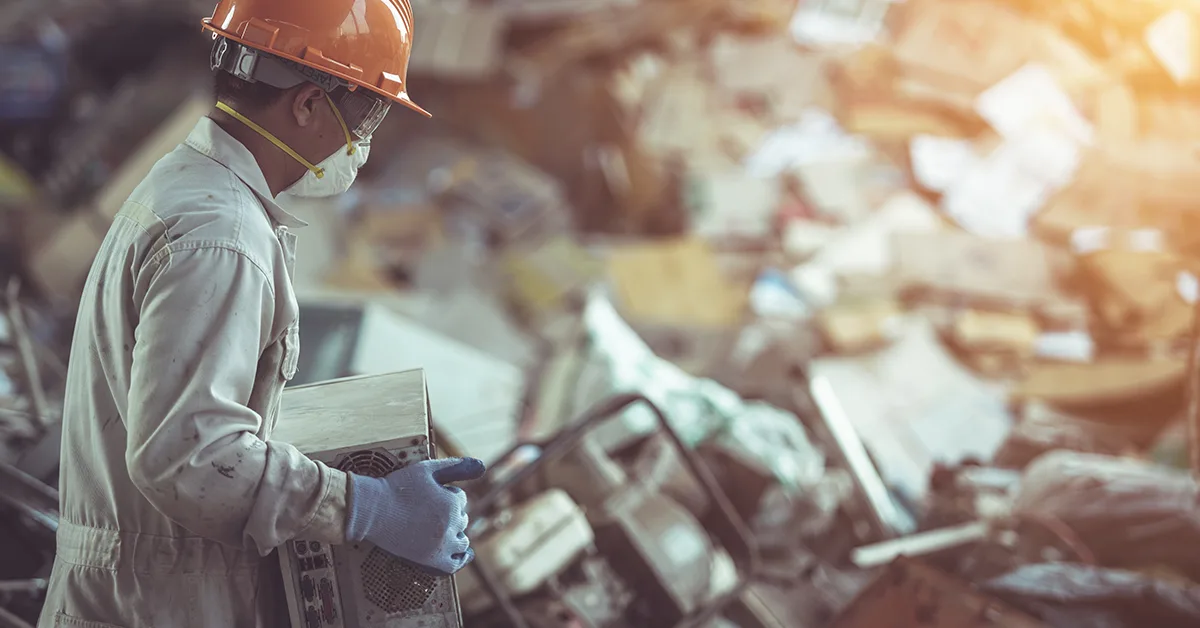
What is E-Waste and why is it such a problem?
E-waste refers to electronic products that are unwanted, not working and nearing or at the end of their useful life, ie., VCR’s, fax machines, IT servers and racks, and almost anything that has a battery or basic cord. Because many people don’t give thought to where their e-waste goes, you might not know of any other way to dispose of it other than to simply throw it into the trash, which ultimately ends up in landfills – which is bad for the environment.
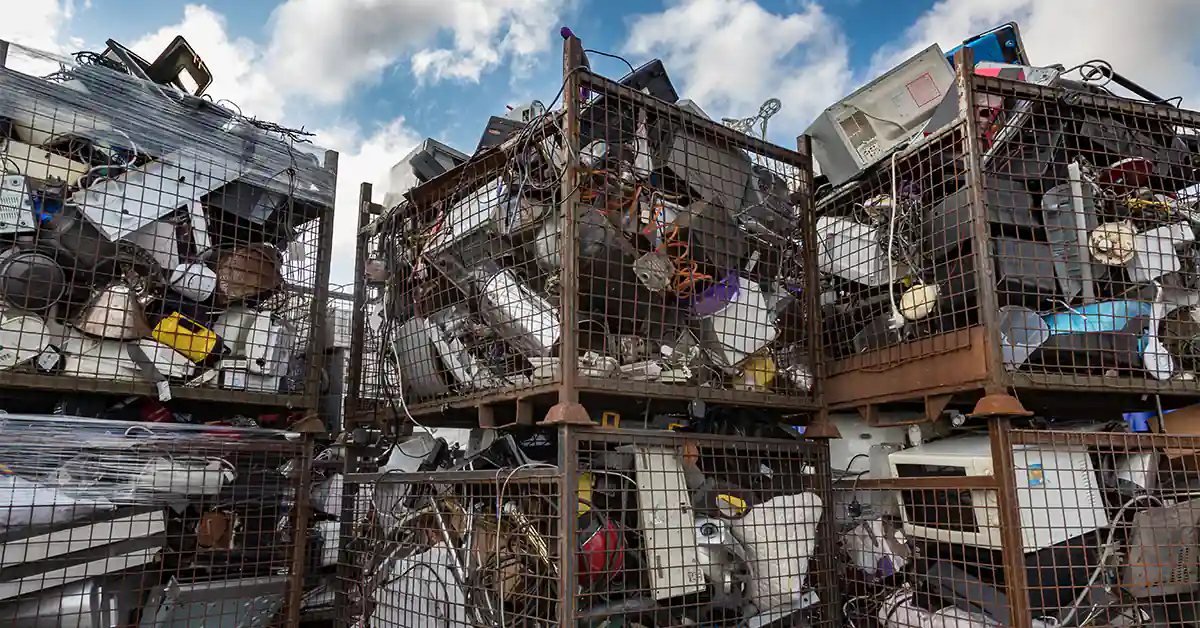
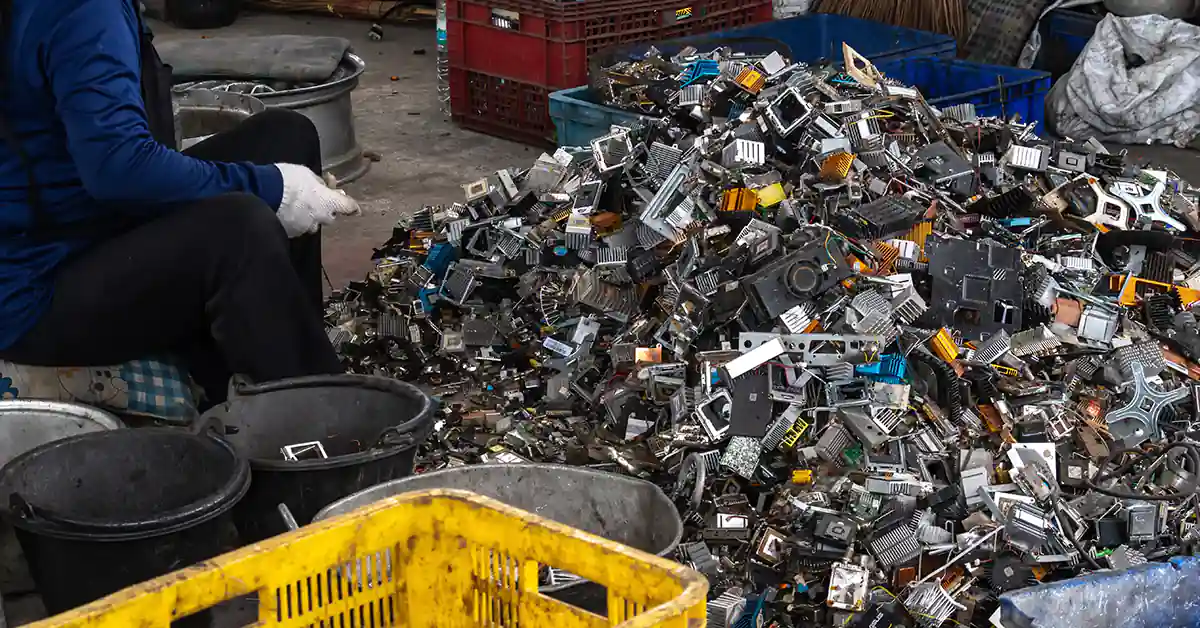
Why is it imperative to recycle electronics?
The ongoing challenge of how best to dispose of used and unwanted electronics dates back at least to the 1970s. While above ground, modern electronics are safe to use and be around. However, most electronics contain some form of toxic materials, including beryllium, cadmium, mercury, and lead, which pose serious environmental risks. When E-waste is tossed into landfills, these chemicals leak into the soil, polluting the ground water as well as the air. For this reason, it is imperative to recycle your electronics.
When one chooses to recycle rather than throw out their old computers, they help to limit the amount of resources that it requires to produce new electronic items. This is due to the fact that there are many components on old computers that can be reused in the fabrication of new computers. The recycle route is also good for your brand and reputation. People – clients, partners, and vendors – like to work with companies that have recycling programs. Showing everyone that your operation is green can bring in additional customers and add to your bottom line.
Places where e-waste is recycled
Nowadays, there are many trusted electronic recyclers spread throughout the country and states who will work with you. However, if you’re looking for someone that will do more than just recycle your E-waste, you should consider an IT Asset Disposition (ITAD) provider. Not only will most ITAD’s offer to pick-up your E-waste, some can decommission a data center and some can assist in determining the value of all retired assets and return value as credit to you.
As an example, OceanTech, a trusted ITAD provider, will ensure that any equipment that still holds market value will be cataloged for reimbursements, sanitized of all data, reset to factory default settings and returned to grade-A condition to guarantee the best possible resale rate. Our processes are specifically designed to bring value back to our customers and reduce the amount of equipment entering the waste stream.
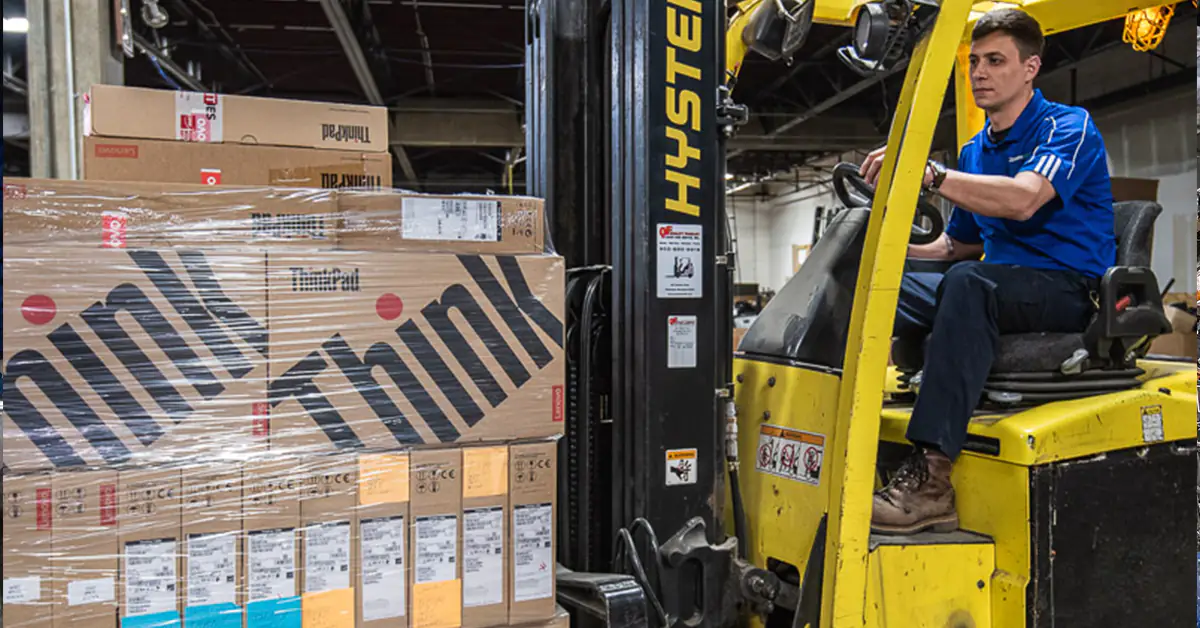
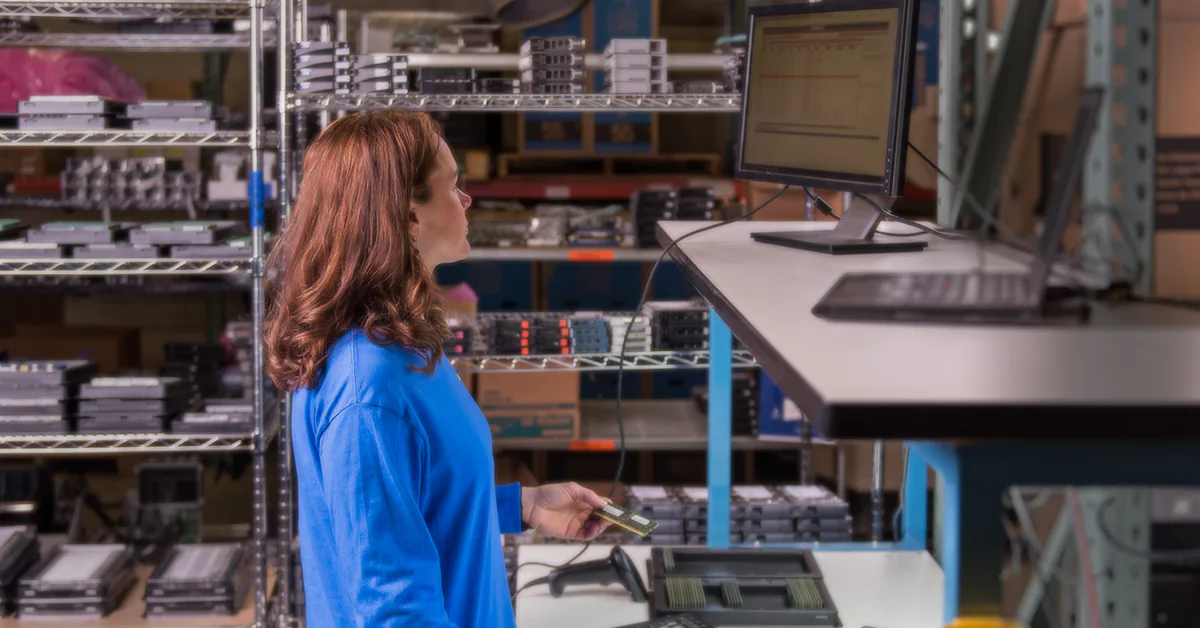
Data Security – Erasing all your data
Before you go ahead and donate or recycle your smartphones, laptops, and computers, it is vital to ensure that all data has been erased – this is another good reason to choose an ITAD provider. OceanTech is dedicated to protecting your data, including your client’s data. We have a secure chain of custody from the moment we take control of your equipment, through the transportation of equipment back to our facility.
Our process ensures that all retired assets from your organization are wiped clean of any and all information, virtually eliminating the risk of a costly data breach.

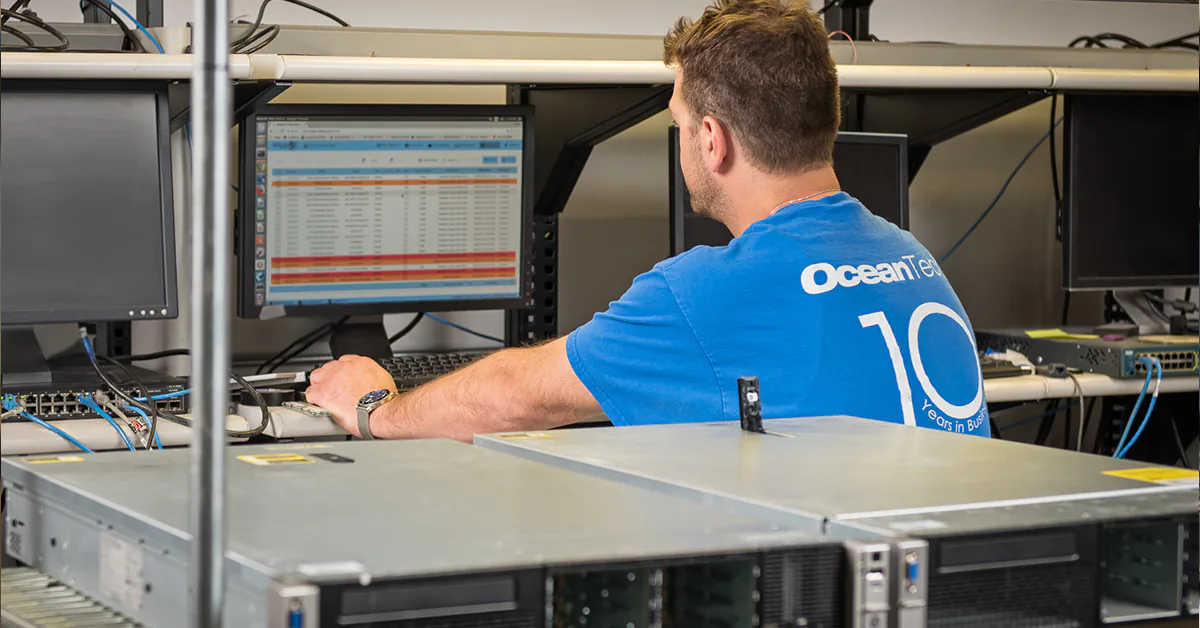
Most businesses have a pile of unwanted electronics
Many companies have a pile of unwanted or unused devices, and yours is probably not an exception. In the e-waste recycling world, it is known as ‘the pile of denial.’ It grows with time, especially if you are part of a large organization. It is best to recycle your electronics as soon as you decide that you cannot use them anymore. They generally depreciate at a relatively fast rate, and if you wait too long to recycle, all the parts might not be usable anymore.
Recycling your gadgets is good for the environment and the best way to ensure there is less e-waste is to use your electronics as long as they are functioning and properly discard of them at end of life
OceanTech is proud to hold the R2:2013 Responsible Recycling certification as well as the ISO 14001:2015 environmental management system, and ISO 45001:2018 occupational health and safety certifications.
In the process of attaining these internationally recognized certifications, our environmental, health, safety, occupational, and security procedures have been stringently evaluated and certified by an independent third-party auditor.


